Hello and welcome to Episode 12 of the What China Wants podcast.
The UK has had a long and - at times - difficult relationship with China. But in 2015 past issues were put to bed when David Cameron, ably assisted by his Chancellor, George Osborn, declared that the relatinship between the two countries was now entering a new Golden Age. To seal the deal, and to secure billions of pounds of investment, Cameron invited Xi for a state visit, the highlight of which (for the newspaper photographers at least) was a visit to an Oxfordshire pub.
It al looks very different today. Relations are at a low, and the Conservative Party candidates for the next Prime Minister are trying to outcompete each other on how tough they would be on China.
To explore the evolving relationship between China and the UK we have with us today Sam Hogg, the author of the highly popular newsletter Beijing to Britain.
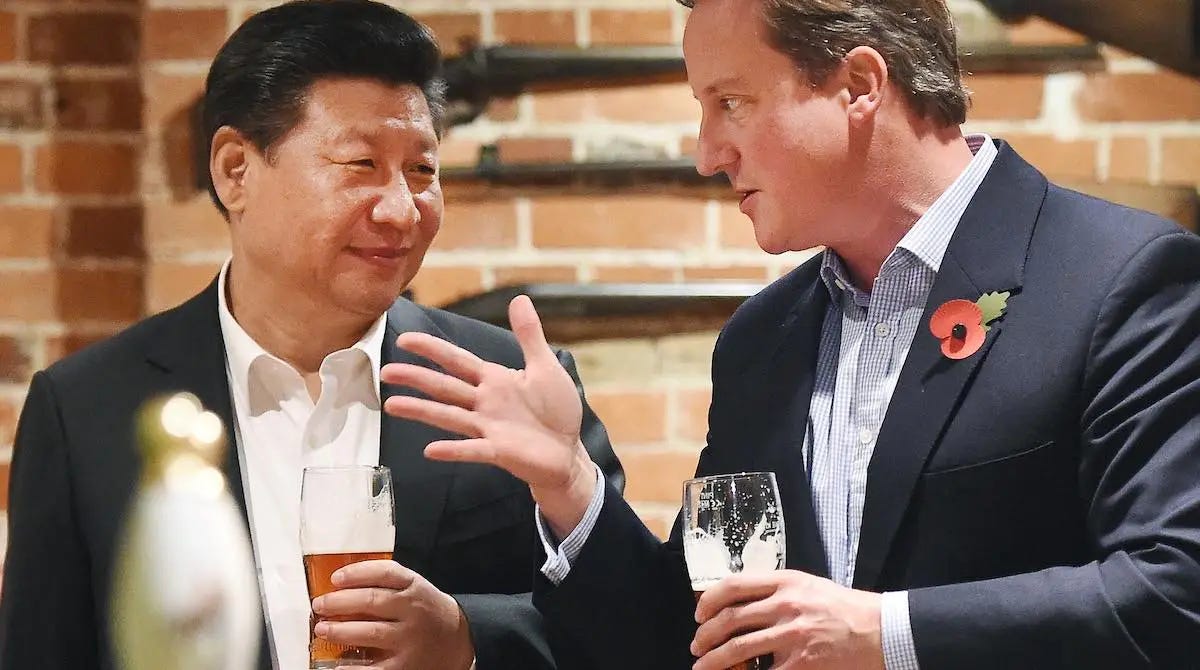
Our main points from today’s episode:
Anglo-Chinese political relations have been hit by a number of issues in recent years, including the crackdown in Hong Kong and the revelations about the treatment of Uighurs in Xinjiang.
These have led to British politicians taking a much harder and bipartisan stance on China - a stance not helped by Beijing sanctioning a number of MPs.
In terms of economic exchange, this is actually increasing, but the politicisation of investment (on both sides) is a threat to this.
With attitudes in the UK political scene hardening towards China , the coming years will likely challenge the countries’ relationship even more.
You can also listen to the podcast on Apple, Amazon, or Spotify.
As always please do share, comment, and subscribe. We’ll be back next week with more What China Wants.
Many thanks for listening.
***
Here is a transcript of the episode:
Sam Olsen: Hello and welcome to episode 12 of the What China Wants podcast with me, Sam Olsen, and Stewart Paterson. I am going to start today with a quote, not from Xi Jinping for a change, but a quote from the Financial Times from September 2015. "George Osborne arrived in Beijing on Sunday to proclaim the advent of a golden decade in Sino-British relations, strengthening his role as a leading advocate of China. The main purpose of Mr. Osborne's mission is to persuade China that no economy in the West is as open to Chinese investment as the UK, as witnessed by Mr. Osborne's offer to China to take a big stake in Britain's nuclear power revival."
This harks back to, as they said, the golden era of the Cameron time when Xi Jinping drank beer in an Oxfordshire pub, and the leaders of the two countries cooed into each other's ears about how the future together was rosy. But it has become a bit sour since then, as Stewart and I have often spoken about over the last few months. The question is why and how this has shifted, and today, we're joined by an expert in Anglo-Chinese relations, Sam Hogg from the Beijing to Britain newsletter, who will hopefully be able to give a bit of illustration as to what on earth went wrong. Welcome, Sam.
Sam Hogg: Thank you so much, Sam. Thanks Stewart.
SO: You'll see that by saying things have gone wrong, I am sort of taking away your answer from the first question, which is, what are British-Chinese relations now? And are they as bad as people might think?
SH: That's a great question. I think British-Chinese political relations are not particularly strong, they are quite strained. But the economic relationship is still pretty strong. I think for the sake of this will focus on the former because it's what everyone discusses really in the context of UK-China relations. As you will have seen, we've got two candidates to become prime minister, and we'll come on to that more at length. But the fact that both candidates have been forced effectively to have a China's strategy speaks to the fact that China is front of mind for many conservative voters, and for Conservative MPs too.
Stewart Paterson: Just to pick up on the point you yourself made, which is that there's perhaps a dichotomy between political relations and other spheres of interaction with China. Do you think that the cooling of relations is confined to the political sphere? Because clearly, things such as the Chinese Foreign Anti-Sanctions law, the change in the governance structures in Hong Kong, I mean, these must be having a detrimental impact on UK corporate relations with China, one would have thought. And clearly we're seeing a lot in the news about the deterioration in relations between UK academic institutions and China, to name but two other spheres of interaction between the two countries.
As the politics has gone south, you are alluding to the fact you don’t think the economic relationship is in so much trouble. Perhaps you could elaborate on that?
SH: So, again, that's a great point. I think trade between the two countries is pretty strong, but the political conversation knocks onto other things. The example you raise there, academia, has been under intense scrutiny for the last two years, a series of stories about different Chinese firms working with British universities, and business as a whole, about British businesses being sold to Chinese enterprises.
They have both been in a political narrative now for enough time that the government has tabled legislation to deal with both these things. So in the case of the former, higher education, you have the Higher Education Bill, which will have an amendment, seeking to inject some transparency around foreign entities funding university projects. And in the case of the latter, you have, of course, the National Security Investment Act, which seeks to limit not just Chinese investment, but foreign investment into national assets of importance. So although it starts in Westminster it often spills over into business and into academia and actually into society at large as well.
SP: It's interesting that you are very much putting Westminster first here and being politics led. Some people would argue that Chinese behaviour towards our academic institutions and the asymmetry in our trade relationship, and the way some British companies have been treated in China, that it was very much actually the deterioration in the economics and other dimensions in the relationship to which Westminster has responded. And in fact, Westminster has responded slowly and arguably, very behind the curve. Who knows what history might show, but it could be that our politicians have woken up to the China threat just as the China threat starts to diminish if some of what we're hearing out of the Chinese economy comes to fruition. What would you say to that?
SH: I think it is a fair point, although in my experience, having worked in parliament for a while, there are three or four key moments that changed the era from being the Golden Age into our current, whatever fancy term you want to use to describe the UK China relations as is. I'm quite fond of, although it's meant for the US China one, Kevin Rudd's 'Decade of Living Dangerously'.
I think one of the key changes was Hong Kong, watching how Hong Kong authorities clamped down, if you want to use that term, on Hong Kong democracy activist and introduced the National Security Law too. And then, it's really hard to overemphasise how important journalism and leaks and data around Xinjiang was for setting the tone in many British politicians minds around where China is headed or where China under President Xi is headed. Those two things are really important. And then on the ground in the UK, Huawei obviously was a conversation that took place over a series of years here. That was one of the first times you saw a big backbench conservative rebellion build up around a China-related issue post golden era.
So I do take your point. I think, again, in my personal experience, the mind of an MP is on 1,001 things at once, and so they can't really apply the nuance in the sense that you've raised there. They look at these things as quite episodic, and it's only now that we have seen more of these episodes tied together that it feels like there's a really big kickback against China, if you will.
SO: So do you think that politicians in this country, and in the West, generally, but especially in the UK, have a good understanding of China? And if so, which are the ones who you think we should be listening to when it comes to their comments about British-Chinese relations, or indeed, just what's happening in China itself?
SH: A genuinely million-dollar question, and one of my favourite ones. I think they know a fair bit about how China presents itself on the global stage, although less than five of them would be able to read or speak Mandarin. Also British politicians, MPs this is, don't hire foreign affairs-minded staff. That's not how it works in Parliament. So you don't bring in a China specialist. You bring in a team that assembles stuff around your case work. And if you sit on a committee like the Foreign Affairs Committee, you then have access to very useful briefings which are done confidentially most of the time, but also a chance to interview expert witnesses in that sense.
I think the ones I would listen to in that regard are people like Tom Tugendhat, who is the youngest Chair of the Foreign Affairs Committee and recently ran to be Conservative leader and therefore Prime Minister, and also co-founded the China Research Group in 2020. I would put Mark Logan in there who used to work as a foreign diplomat in China, Catherine West, who is Labour's Shadow Minister for Asia, and Richard Graham, who chairs the China All Party Parliamentary Group. Then in the Lord's we have a fair number of people including Lord Patten, the last governor of Hong Kong who obviously brings a wealth of expertise.
So I think the majority of them probably are not that well equipped to discuss the more complex parts of how the PRC internal stuff works. But in terms of understanding where China stands on the global stage, they definitely view it through a Western lens, but it's not at the same place where it was three years ago. There are more groups now that have evolved to help brief MPs on these quite difficult issues.
SP: It's good to hear, Sam, that some MPs, a handful at least, in your view, have a good understanding of China. But we've just had this incident with Christine Lee, who, for our listeners' benefit if they're not aware, has been accused of influencing parliamentarians or trying to purchase influence or parliamentarians using CCP resources.
To what extent do you think the United Front and other CCP organisations have been trying to dictate the narrative as it were, to our parliamentarians? And what level of success do you think they've had in terms of presenting what China wants us to believe about them to our legislators?
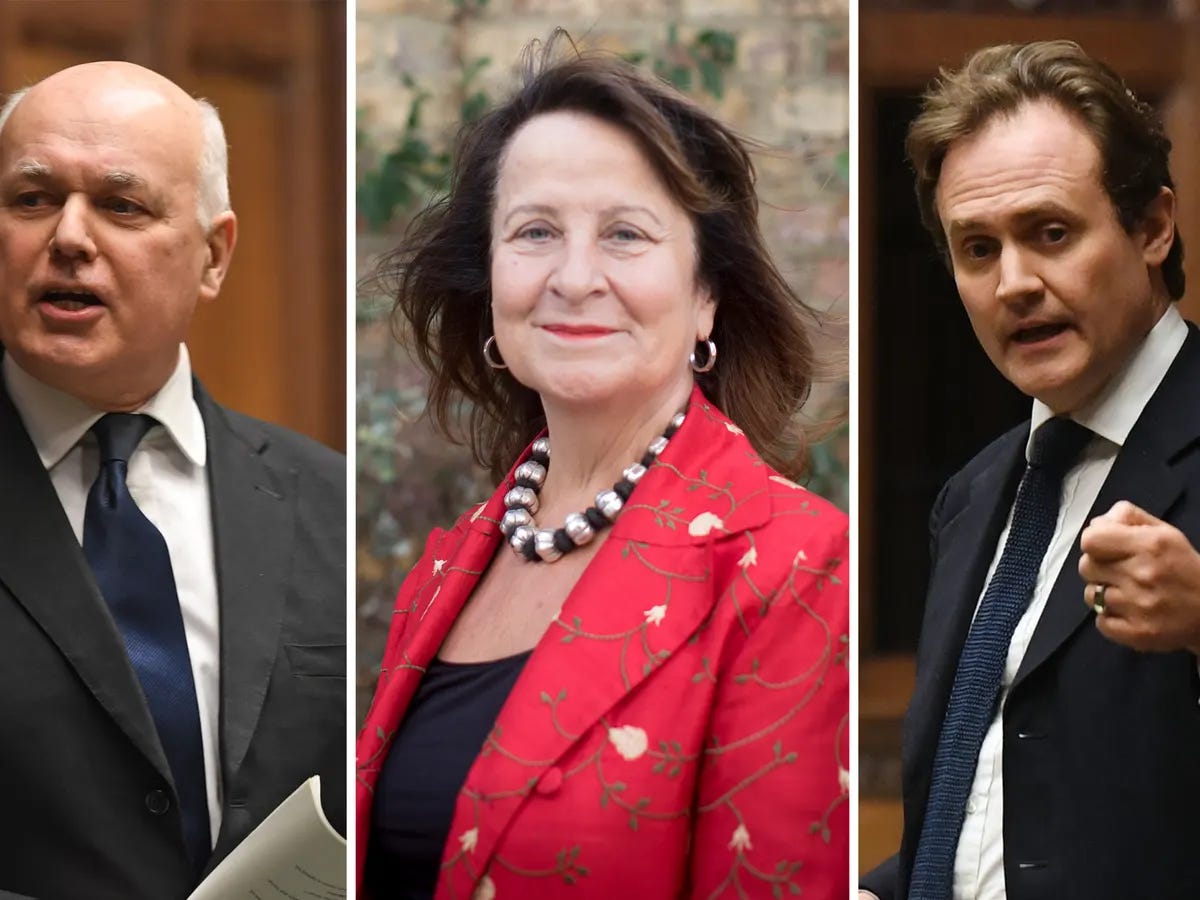
SO: Before you answer that, it's interesting, because Stewart and I have spoken about this before, but recently, I was having a meeting with a very senior civil servant in the UK. He poured scorn on the idea that China had indeed tried to infiltrate British political society.
There's obviously not a joined-up view on this. I don't know what you're about to say, but it would be good for you to explain a little to our listeners about what both sides of the same you know, those who say that there are moved by China to free trade and those who say that it actually this is just over-egging the pudding, what's your thoughts?
SH: So I think it's again a great question, in terms of how much influence and interference do we see aimed at MPs. I think there are interference and influence operations taking place, although they're usually not the ones that are discussed as publicly as something like the Christine Lee case.
To give you an example, one side that would put forward the view that interference is taking place would point to the endless emails you get, which has 'MP's first name MP's last name @gmail.com'. And they send these emails to MPs trying to phish out details around often not that sensitive things, but just as a sort of phishing operation. That's definitely an element that we see quite a lot, and you hear about it reported every now and then too.
In terms of the Christine Lee one, it was a very interesting case wherein she's not been charged. As far as I'm aware, she still operates as a free citizen in the UK. It was quite divisive among some of the older China guard, if you will, who saw what she was doing as not that far from lobbying. You have loads of people from many different nationalities knocking about parliament.
But in terms of the younger, more active, I would say, MPs, and a lot of activists in this space in general, they do think that there is a strong interference operation going on. How effective is it? I mean, look at the debate around China, if China's goal is to have an incredibly poisonous political relationship, then they are smashing it out of the park, but I suspect it is not the stated aim of the United Front in the UK.
SO: So Sam, I suppose one of the things that we haven't spoken about is your own background. We've spoken a lot about the politics of Westminster, maybe you could tell us a little bit about how you came to be interested in China and your political interests?
SH: Sure. I spent ten very happy years living between Hong Kong and Scotland, that was throughout school and university. After that I was working in London for a strategic advisory company, and I wanted to get involved in working in British politics with a China-facing role. The position didn't exist, and so I thought I need to find a couple of MPs who are speaking about China and see if I can lend a hand at some level there. My former boss, Nusrat Ghani MP was a Conservative backbench MP, and she sat on this business committee, the business select committee. And they were under her leadership having a report and inquiry into supply chains in Xinjiang. So I applied to work for her was incredibly fortunate to be accepted in and spent a year working on a number of issues from supply chains and forced labour through to declaring genocide via parliament.
SP: She's been sanctioned, hasn't she?
SH: That's exactly right. On my fourth or fifth week, my MP was sanctioned. I woke up at about 4:30 in the morning, in a fever dream as my phone was buzzing from one of my friends who is a journalist saying, "Have you seen the news?" I thought 'nothing good happens at 4:30 in the morning after the age of 21'. The nightmare swept over, and then here we are.
Her being sanctioned sort of set the tone. And actually, I should have referenced that another moment which unified political thinking in Westminster around China being quite hostile is when they sanctioned British MPs, because all of a sudden, MPs, even if they had no China interest before, came together around their fellow colleagues. And this was seen as an attack on democracy as well. Hence why you had all that language from those MPs, saying they wear it as a badge of honour, that they wouldn't be cowed into submission.
That was my background. And throughout that time, and just beforehand, I had started writing a weekly briefing on UK-China news, just aggregating it anonymously, which I did throughout my time there, just pulling stuff in the public domain into a sort of succinct format, which didn't really exist before. And post leaving, it's been my full-time job, I'm very fortunate.
SO: And you were just mentioning about the sanctioning being an important part in the downward spiral. But to what extent do you think that personal antipathy towards China from the MPs who have been caught up in this has a dampening effect on Chinese relations? Or do you think actually that we should be thinking about their professional stances rather than any personal side that they might have?
SH: So I think I'll answer that slightly generally. My personal view is that I would like MPs and politicians and sort of spokespeople on both sides to act with a slightly higher level of decorum, because I think it's easy to view China as a monolith, and to think that President Xi has oversight of every single minuscule bit and pieces going on. Even today, again, we'll come on to that later on, but the fact that Rishi Sunak, one of the potential candidates for prime minister, has declared that China will be the biggest threat for the UK, that language lacks complexity to actually talk about what his perceived issue is, which is the CCP rather than China as a country.
On the flip side, it does not help MPs come to a more 'complex or nuanced view', if they are facing wolf warrior diplomacy on Twitter, and a Chinese Embassy here that constantly puts out quite bizarre press releases. So, being sanctioned is obviously a very personal thing, and I don't suspect most people who are sanctioned look at their sanctioner and think 'perfect, this is going to improve my relationship with you', and that's unfortunately what we saw.
Also, if I could add one more thing, at the beginning of the sort of end of the golden era, it didn't take a huge amount of experience to have a view on what you wanted the UK's relationship with China to look like. Therefore you had lots of people coming in offering a view. Now, because the people who have been working in this space have been there for a bit longer, if you're a new MP and you pipe up saying something that's a bit out of place, people might say to you, "well, that's a bit unusual. That's a bit odd." But back then it was a bit more of a free for all.
SP: We refer to the 'golden ersa’, primarily because that's what Cameron called it rather than because it was necessarily a golden era. Looking back on that period, what is there to point to suggest that it was a golden era? Chinese FDI into this country was miniscule compared to our main trading partners, certainly compared to what China could have put into this country. Trade with China has grown obviously, quite fast, but it's been very asymmetric in terms of the growth, i.e. they export to us, our exports to them are pretty subdued I think we export to them a little bit less than we do to Switzerland, but more than we do to Ireland or the other way around. It's not exactly driving the UK economy. So is the golden era misnamed?
SH: That is a genuinely great question. I think the level of political dialogue between the two countries would make it, in the mind of politicians in the UK, a golden era. You had President Xi's state visit here, as Sam mentioned earlier on, they had a pint of beer together, some fish and chips as well. President Xi visited Manchester City's football stadium, took a selfie with Aguero and David Cameron. You had George Osborne, the then-Chancellor visited China. He took with him a series of Northern business leaders to Xinjiang where they talked about how they were going to grow connections between China and the northern powerhouse and northern companies.
It just felt at the time as of this was it; the UK was going to present itself as China's Western partner, and that was the direction of travel. And as late as 2019, you have then-Chancellor Philip Hammond giving a speech about how the UK can work with China's Belt and Road Initiative, so that momentum kept on going for a couple of years.
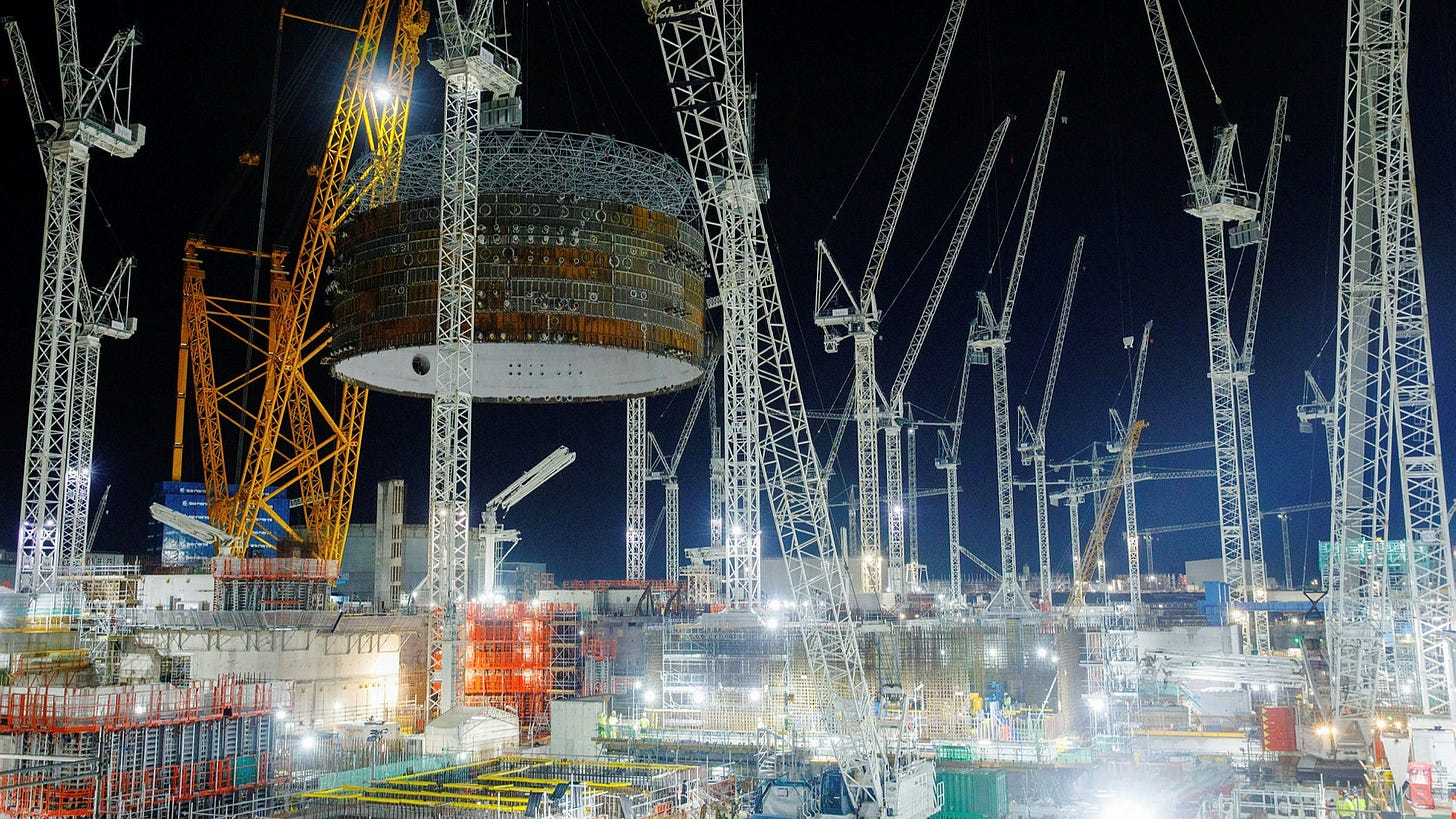
SP: Looking at Parliament now, is it possible to stereotype the different political parties' approach to China? Is there a discernible difference in the driving motivations between the Conservative Party, the Labour Party and the Lib Dems? And actually the regional parties as well, the Scottish nationalists, etc, in their approach to China, or is it much more a sort of cross-party consensus with a few dissenting voices around the edges, which are equally likely to come from right or left?
SH: Yes, so it's much more, as you say, a cross-party consensus. To give you one example, genocide in Xinjiang, for example. That is the Labour Party's official view right now that that's taking place. That's the Liberal Democrats' party official view that was taking place, and Conservative backbenchers, by and large, were the ones that helped push that motion through Parliament. So you don't see a huge amount of change on those sort of things. Approaches to stuff like the steel industry may have a slight variation from Labour. But by and large, the view is how the integrated review set out China, as a systemic challenge to the UK, a systemic competitor, but one that we also need to pursue some sort of economic relationship with.
The difficulty with Labour obviously, is that they've not been in power for almost half my life. So it's really hard to tell what their China policy would be beyond what they talk about. And as the leader of the opposition, you can have quite ambitious views that can change quite rapidly when you come into power. But there is not one party that's pushing for closer UK-China relationship or a hark back to the golden era.
SP: Within the parliament, though, China does have its friends, right, its supporters or if not, its friends, those who are prepared to lobby quite hard for the deepening of commercial relationships irrespective of genocide or what have you. What would be the typical characteristics of people who are prepared to slightly go out on a limb to argue for deeper commercial engagement with China?
SH: So I think this is a minority of parliamentarians and peers, but they would typically present the real polity case, which is that 'China is the world's second largest economy, we cannot simply decouple'. The more extreme of them may say that actually talking about a genocide taking place with no follow through, is actually not helping anyone on the ground. Some of them might point to the fact that they believe the Hong Kong protesters were misled by British parliamentarians to think they could effectively march and secure their own democracy, and that was never going to happen.
But those are not popular views. And those are not views you would ever see really voiced in the chamber anymore during debates on China. They don't exist at a level that I would be able to provide any real insight onto, I'm afraid.
SO: So we've spoken a lot about what Britain thinks of China. But what does China think of Britain? You must come up with a lot of interesting insights into this in your writings.
SH: So this is actually one of the things that I'm looking to try and expand in the Beijing to Britain offering is a sort of view from Beijing. As you may or may not know I actually don't speak Mandarin. So that's why Beijing to Britain right now reflects how the UK discusses China. As a result I have to get my information around how China discusses the UK through friends who do speak Mandarin and bits that are sent in.
But one of the recurring themes here is that people believe the Global Times speaks for the state. And you can see the Global Times' recent coverage of Rishi Sunak, Liz Truss, Tom Tugendhat and Penny Mordaunt when they were in the final four or five. Also Kemi Badenoch too, but not so much. They view Rishi Sunak as the pragmatic continuation candidate almost, and they have a litany of phrases to describe Liz Truss who they are not very fond of at all
SO: Come on, give us some, because I think our listeners would like to hear the outbursts.
SH: Okay, so there's an article that was the other day about Liz Truss being a disastrous PM for Britain. It says "As Foreign Secretary Trust has made herself known through an appeal to extreme nationalism, overboard, ideological chauvinism and unnecessary hawkishness. Former Australian Prime Minister Paul Keating famously described her as 'demented'." That's a classic, here's another great one. "Truss has clearly mastered an art of failing upwards in advancing her career through an appeal to overboard popular sentiment, and was selected by an equally opportunistic and chaotic Boris Johnson government, not of course for her competence and skill set, but through the sheer fact she said things that people wanted to hear, having made her name as Minister for State by grotesquely exaggerating Britain's post-Brexit trade gains, and successfully glossing over the country's grim economic outlook." And then to conclude, "It goes without saying that a Liz Truss leadership would constitute nothing less than a colossal disaster for the UK, and there is absolutely nothing beyond her unhinged rhetoric, which would suggest she is even remotely qualified for the role of Prime Minister."
SP: So Sam, I wonder if the Chinese, or at least the Global Times, which of course doesn't speak for all Chinese at all, but I wonder if the Global Times still has this view of Rishi Sunak after today's tweets, because I saw in my LinkedIn feed, that he's come out with a pretty stern set of policies towards China.
SO: Including shutting off the Confucius Institutes, I mean, that's not going to go down well, in Beijing!
SP: Yes, shutting those and pointing out that the UK channel their money through them in terms of Mandarin education, effectively, therefore giving the Communist Party of China a monopoly of teaching British people Mandarin. I don't know whether that's true or not, I think it is, but we'll research that one. Looking at the two candidates, is there much to choose between them, do you think, in terms of their approach to China relations?
SH: So the two candidates have had to both come up with a Chinese strategy. Liz Truss, who still is the Foreign Secretary has her own approach to China, which she calls the 'Network of Liberty' strategy, and that involves working with like-minded partners throughout the region, throughout the world to counter economic coercion, Chinese misdemeanours in this sort of region.
Until about 24 hours ago, Rishi Sunak had nothing really on record to show what you might term as anti-Chinese Communist Party policies at all. He had given a speech at Mansion House last year where he complained about the lack of nuance in the discussion around China, and how we're going to need to engage with China as an economic partner in the world. So there's a lot of distance between where Liz Truss and Rishi Sunak historically have sat on China. Now, in the last 24 hours, if you were to be teleported into today, and this was your first look at both candidates, you might think 'wow, they both have quite an aggressive anti-CCP stance'.
The Confucius Institutes ban is something that's been kicking about parliament for a couple of months actually, and was first strapped in via an amendment to one of the bills passing through Parliament by an MP called Alicia Kearns. It's quite shocking to see it made an actual policy statement within about eight weeks. And again, one of the reasons he's chosen Confucius Institutes is because Liz Truss in 2014 welcomed Confucius Institutes into the UK as part of her role. And so it's a useful prodding point to say, you know, you've flip-flopped on being a Lib Dem you'll flip-flopped on voting for Remain not Brexit. And now you're flip-flopping on another significant China issue, which is Confucius Institutes. How much that holds water is anyone's guess. It will be really interesting to see how it plays out during tonight's debate and in future hustings, if anyone has had the dial move to thinking that Sunak is a anti-Chinese Communist Party candidate.
SO: Well, a key challenge between now and the next five years or so is going to be how the new British Prime Minister deals with China in a constructive way or an aggressive way, depending on your point of view. And that obviously sets the tone for a lot of what happens economically as well. But what do you think is going to be the biggest challenges over the next few years, but from both sides?
SH: I think from the Chinese side looking to the UK, one of the big challenges will be understanding how parliamentary democracy works properly. So, separating the views from Parliament and Government, understanding how actual political campaigns work in the sense of, I might pledge 'x', 'y', 'z', and then come into power and only implement 'z'. So it's about managing the risks properly there and understanding the context of when they were made.
From the UK side, both candidates have put themselves in a fairly difficult position because Liz Truss allegedly told MPs two weeks ago that she would declare publicly that genocide is taking place in Xinjiang if she became prime minister, which in turn triggers a series of legal obligations from the United Kingdom to act to prevent genocide. And Rishi Sunak has obviously made these significant claims around Confucius Institutes and shutting them down, but has offered no real policy behind how we would seek to build our Mandarin proficiency in this country, which is pretty poor as is.
So they're both going to have a busy calendar week when they arrive to begin with. And on top of that, as well, they'll have to deal with the calling or passing on of Newport Wafer Fab. So it's going to be a pretty hectic first month, and that I imagine will continue for two years until the next election.
SP: Sam, thank you very much indeed for joining us. It's a fascinating insight into Anglo-Chinese relations, past, present, and maybe a glimpse into what they might hold in the future. And for all our listeners, Beijing to Britain is available. Sam, you write a lot on Twitter, but is there a website that they can go to? To follow your blog?
SH: There is, it’s at www.beijingtobritain.com
SP: Brilliant, thank you very much.
SO: Great Sam, thanks. Very nice to talk to you.
SH: Thanks for having me.
SO: And we'll be back with more What China Wants next week.






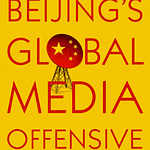
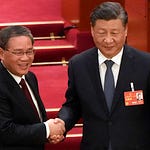
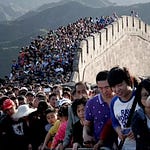



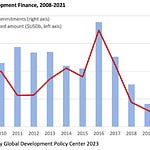
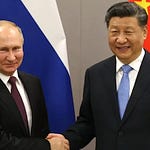
Episode 12: The UK's changing relationship with China